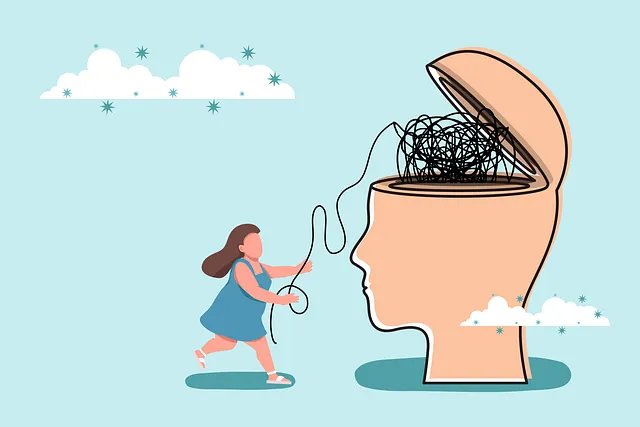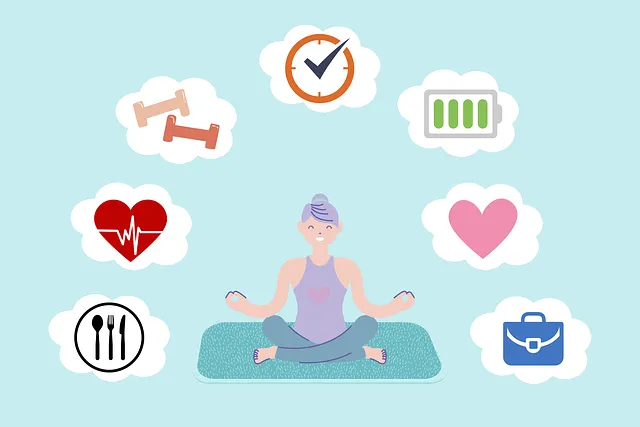Lafayette Kaiser Permanente prioritizes cultural sensitivity in mental healthcare, ensuring tailored treatment for diverse patient populations. Through ongoing training and holistic approaches, healthcare providers enhance emotional intelligence, avoid assumptions, and incorporate culturally validated practices like mindfulness meditation. This commitment bridges the gap between patients' unique backgrounds and effective mental health services, as evidenced by the high number of Lafayette Kaiser Permanente mental health appointments.
Cultural sensitivity is a cornerstone of effective mental healthcare, ensuring every patient receives compassionate, tailored support. This article explores the vital concept of cultural sensitivity in mental healthcare practice, drawing insights from Lafayette Kaiser Permanente’s proven approach. We’ll delve into specific tips for professionals to enhance cultural competence during appointments, reflecting Lafayette Kaiser Permanente’s commitment to improving access and outcomes for diverse patient populations.
- Understanding Cultural Sensitivity in Mental Healthcare
- Lafayette Kaiser Permanente's Approach to Cultural Competence
- Tips for Practicing Cultural Sensitivity During Appointments
Understanding Cultural Sensitivity in Mental Healthcare

Cultural sensitivity in mental healthcare is a vital aspect that goes beyond providing clinical care. It involves understanding and respecting the diverse cultural backgrounds, beliefs, and values of patients, especially when addressing their mental health concerns. In the context of Lafayette Kaiser Permanente mental health appointments (a number for which interested individuals can search), cultural sensitivity means creating an inclusive environment where every patient feels heard and supported. This approach is essential to ensuring effective treatment and fostering positive outcomes.
Healthcare providers play a crucial role in promoting cultural sensitivity through ongoing training, such as cultural competency programs. These initiatives educate professionals on various topics, including burnout prevention, self-esteem improvement, and the impact of cultural factors on mental health. By equipping healthcare providers with these skills, organizations like Kaiser Permanente aim to bridge the gap between diverse patient populations and quality mental healthcare services.
Lafayette Kaiser Permanente's Approach to Cultural Competence

Lafayette Kaiser Permanente takes a comprehensive approach to cultural competence in its mental healthcare services. They recognize that providing culturally sensitive care is essential for addressing the unique needs of diverse patient populations. By integrating emotional well-being promotion techniques and mindfulness meditation, they foster an environment that respects and validates individual cultural backgrounds. This holistic strategy ensures patients feel understood and supported during their mental health appointments (Lafayette Kaiser Permanente mental health appointment number).
Through training and education, healthcare professionals at Lafayette Kaiser Permanente enhance their emotional intelligence, enabling them to interact with patients from various cultural contexts effectively. They understand that mental health issues can be influenced by cultural beliefs and practices, and by acknowledging these differences, they tailor their treatment approaches accordingly. This commitment to cultural sensitivity not only improves patient outcomes but also strengthens the overall effectiveness of mental healthcare services.
Tips for Practicing Cultural Sensitivity During Appointments

During mental health appointments at Lafayette Kaiser Permanente, practicing cultural sensitivity is paramount to fostering effective treatment and building trust with diverse patients. Start by actively listening to your patient’s story, allowing them to express their experiences and perspectives freely. Be curious and open-minded; avoid making assumptions based on cultural background or identity. Incorporate stress reduction methods tailored to the patient’s culture, such as mindfulness practices, meditation, or community-focused interventions.
Emotional well-being promotion techniques should be culturally appropriate and inclusive. This might involve integrating traditional healing practices or incorporating family dynamics into therapy if that is central to the patient’s life. By showing genuine interest in understanding your patient’s cultural context, you can create a safe space for them to open up about their mental health concerns, ultimately contributing to more successful depression prevention strategies.
Cultural sensitivity is a cornerstone of effective mental healthcare, and as evidenced by Lafayette Kaiser Permanente’s successful approach, it can significantly improve patient outcomes. By embracing cultural competence during appointments, mental health professionals can create inclusive environments that resonate with diverse patients. This article has explored strategies like understanding cultural nuances, adopting comprehensive training programs, and implementing tailored practices, all of which contribute to enhancing the quality of care. Incorporating these insights, especially when coupled with Lafayette Kaiser Permanente’s model, can lead to more meaningful connections during mental health appointments, fostering trust and encouraging positive outcomes for a wide range of individuals.






